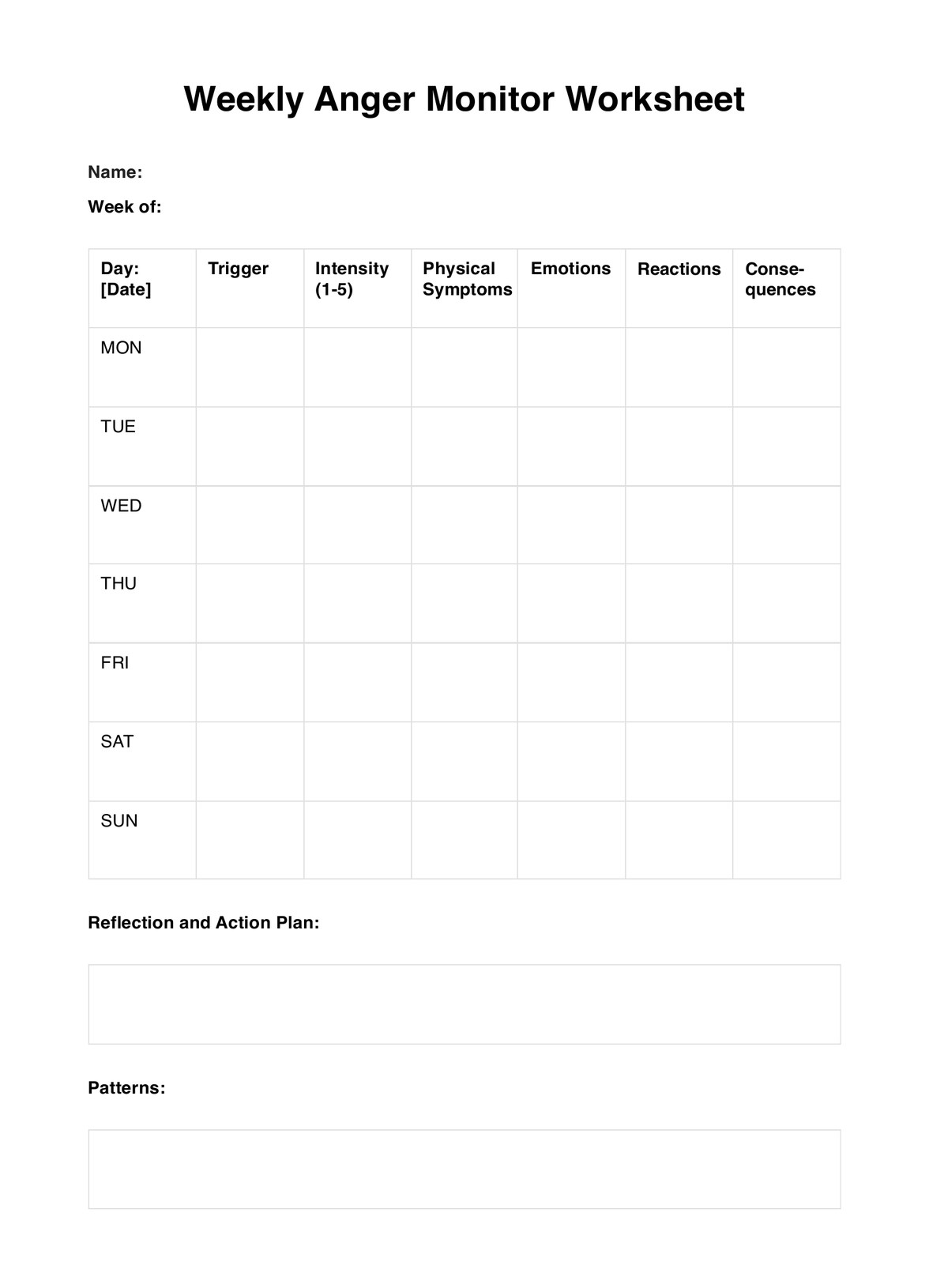Completing the worksheet typically takes about 5-10 minutes each day to reflect on and record your anger-related experiences.

Looking to manage your anger better? Try the Weekly Anger Monitor Worksheet for improved self-awareness and anger management skills. Download now!
Completing the worksheet typically takes about 5-10 minutes each day to reflect on and record your anger-related experiences.
The worksheet helps by increasing self-awareness of anger triggers and patterns, offering insights for better anger management. It can also guide professionals in therapy sessions to support clients in understanding and managing their anger effectively.
Anyone looking to manage their anger more effectively can use the worksheet. Additionally, healthcare professionals, therapists, counselors, and life coaches can use it to assist clients in tracking and improving their anger management skills.
EHR and practice management software
*No credit card required
Free
$0/usd
Unlimited clients
Telehealth
1GB of storage
Client portal text
Automated billing and online payments